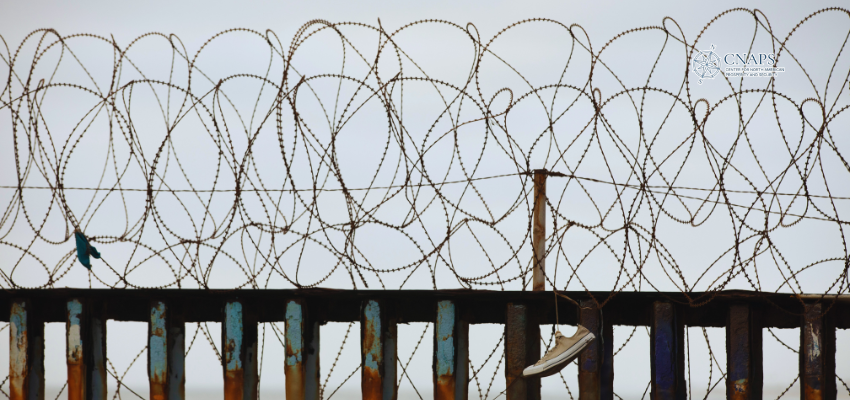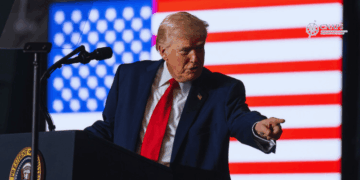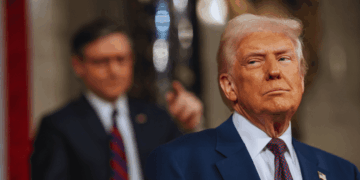This article originally appeared in Real Clear World.
By Christian Leuprecht & Joe Adam George, October 15, 2024
Canada felt serious pain when the U.S. closed its borders after 9/11. The Jean Chrétien government of the day reacted with a singular priority: keep Canada’s border with the U.S. open because Canada’s prosperity depends on it. That primarily meant assuring the U.S. that Canada can be trusted on security-related matters. The Chrétien government even introduced a comprehensive Anti-Terrorism Act in a matter of months.
Those days are long gone. The Trudeau government’s approach to border security has been plagued by weaknesses that continually undermine Washington’s trust in Canada. Once the envy of the world, recent failures have thrust Canada’s immigration system and border security screening failures into the spotlight.
Despite five arrests in four separate terrorism cases in Canada over just six weeks this summer, Immigration Minister Marc Miller remains blindly confident that Canada’s security checks are reliable. These cases even included the arrest of an ISIS-inspired Pakistani national who came to Canada on a student visa and attempted to enter the United States, allegedly intent on perpetrating “the largest attack on U.S. soil since 9/11.”
U.S. Customs and Border Protection (CBP) also encountered a record-high 19,498 illegal migrants at the northern border between October 2023 and July 2024, significantly more than the 7,630 encounters the previous year.
Besides putting immigration on steroids, the Trudeau government even deemed red-flagged foreign nationals admissible. Canada has become a destination of choice for violent Islamist extremists and sympathizers of listed terrorist entities to claim refugee status, obtain citizenship, and proceed to conduct illicit activities. Outlawed Islamist terrorist group Hezbollah has been using Canada as a hub for its drug smuggling and money laundering businesses to fund its military objectives in the Middle East.
At a parliamentary committee hearing in August this year, the Royal Canadian Mounted Police (RCMP), the agency responsible for handling national security-related threats in Canada, warned that the Islamist extremism threat is “significantly on the rise” in the country. The agency saw a 488 per cent year-on-year increase in charges related to Islamist extremism between April 1, 2023, and March 31, 2024.
Canada’s federal security agencies are all under-resourced. The Canada Border Services Agency (CBSA), Immigration, Refugees and Citizenship Canada (IRCC), and the Canadian Security Intelligence Service (CSIS) are struggling to vet the influx of new arrivals from parts of the world where political violence is the order of the day.
At a time when resurgent terrorist groups such as ISIS and al-Qaeda are recruiting candidates and inspiring attacks against the United States, vulnerabilities in Canada’s immigration and refugee systems are sewing doubt about Canada as a trusted ally. Serious irritation in Washington over the Trudeau cabinet’s years-long refusal to reimpose visa requirements on Mexican nationals, against the repeated advice of its own bureaucracy, is but one prominent example.
Twenty-three years on from 9/11, Canada appears to have forgotten the lessons it drew from the attack. The Trudeau government’s lenient immigration policies not only compromise Canada’s longstanding commitment to a continental approach to security, but it also hurts Canada’s long-term economic fortunes.
The United States-Mexico-Canada Agreement on trade is up for review in 2026 and North America’s prosperity hangs in the balance. Violent crime and illegal immigration are hot-button issues for many Americans in the upcoming election. Both presidential candidates, Vice President Kamala Harris and former President Donald Trump, have repeatedly voiced concerns over the northern border.
American politicians shouldn’t have to remind Canada about its long-term commitment to continental security. Certainly not on the eve of the 2026 FIFA World Cup tournament, which will see travelers from around the world entering North America and transiting among Canada, the United States and Mexico.
Canada’s federal government needs to smarten up on its border accord with the U.S.
Christian Leuprecht is co-editor of Security. Cooperation. Governance. The Canada-United States Open Border Paradox, professor at Royal Military College and Queen’s University, and senior fellow at the Center for North American Prosperity and Security.
Joe Adam George is a national security analyst on South Asia and Middle East affairs and a contributing writer with the Macdonald-Laurier Institute in Canada’s capital, Ottawa.








